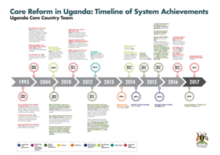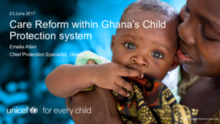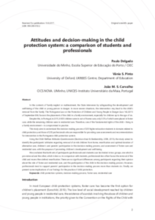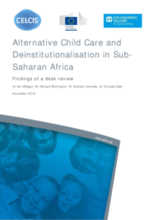Displaying 51 - 60 of 191
This infographic provides a historical timeline of the alternative care reform process in Uganda, marking key achievements in the establishment of policies, guidelines, procedures, and programs to improve the quality of care and protection for children without adequate family care.
This study explored whether receipt of early care and education services reduces the likelihood of foster care placement for children aged 0-5 years in the United States.
This study observes foster care re-entry for young people whose families participated in Cottage Housing Incorporated's Serna Village Program (CHI), a supportive housing program serving homeless families in Sacramento, California.
General Comment 21, issued by the Committee on the Rights of the Child, provides guidance to States on developing comprehensive, long-term national strategies on children in street situations, utilizing a child rights approach and addressing both prevention and response in line with the Convention on the Rights of the Child.
This presentation provides an overview of child protection issues and care reform in Ghana.
In this video, Florence Martin & Delia Pop sit down together to discuss the concept of “gatekeeping” in relation to children’s care, the role it plays in ensuring informed and appropriate decisions about children’s care, and how it operates in practice in different contexts and stages.
This study aims to understand the decision-making process of 200 higher education students in domains related to child protection, and those of 200 professionals who are responsible for providing case assessments and recommendations for intervention in the Portuguese child protection system.
This book presents the results of this research on more than 52,000 children placed in public care in Romania (in special protection) who receive family or residential-type protection services as well as on the children at risk of separation from their families from the source communities.
This desk review provides a brief mapping and summary of existing knowledge on alternative care and deinstitutionalisation in Africa.
On 22 April, BCN Netherlands organized a seminar on gatekeeping in Utrecht, Netherlands. The goal of the yearly event was to share the theoretical framework, principles and practice, and experiences on gatekeeping with a broad audience






